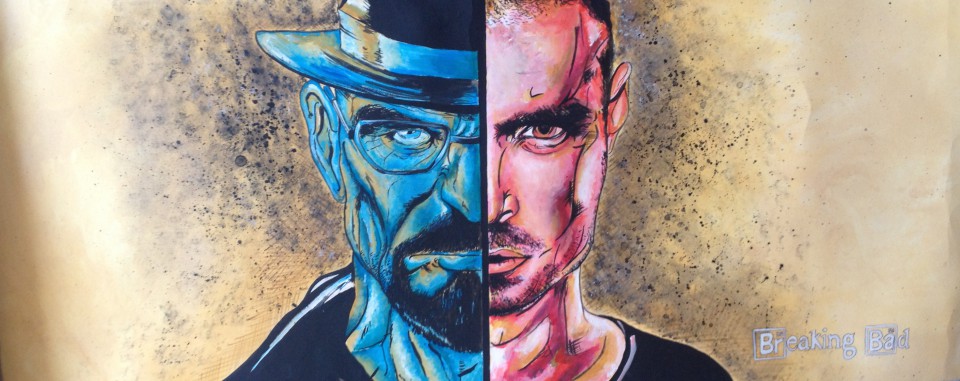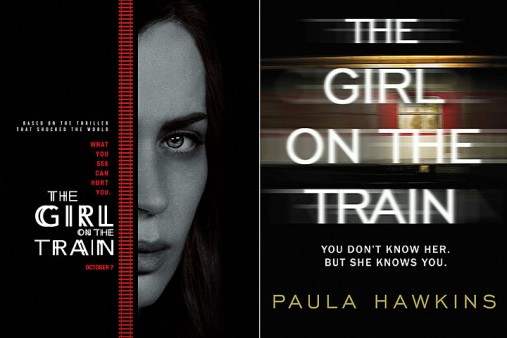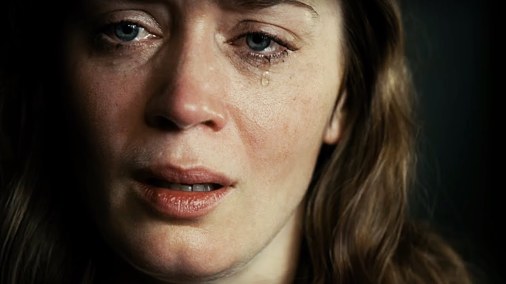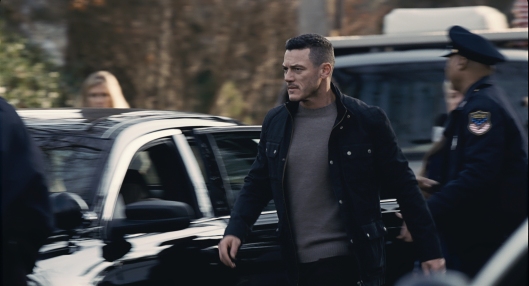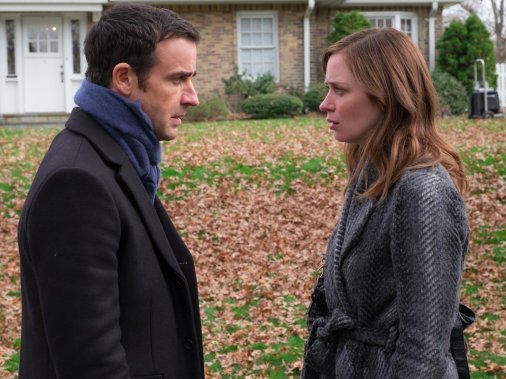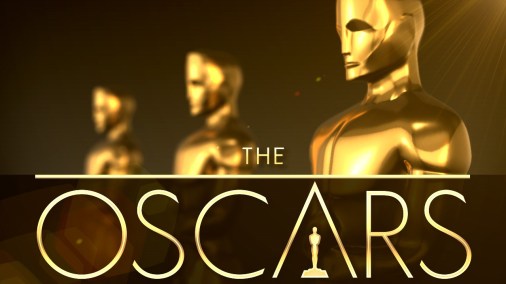
This year’s Oscars is a controversial affair. A lot of the talk surrounding the award ceremony has centred on a lack of diversity in both the films chosen and the voting panel, as films like “Creed”, “Concussion”, and “Straight Outta Compton” have been overlooked despite commercial and critical success. I’m not about to lose my temper over that issue or dwell on it too much, (although I do think that it’s slightly ridiculous that the Academy is predominantly made up of elderly white men), but at the same time I have to say that this is a very weak year.
Similarly to last year, I’m not going to waste time analysing every single category. I don’t have enough knowledge of things like editing or sound mixing to give an educated opinion, so to offer one would be both pointless and arrogant. Instead, I’m going to focus on the big awards that end up on the front of DVD boxes, and probably offer a cynical view or two.
Best Picture

Let’s kick things off with what I believe is one of the weakest categories at this year’s Academy Awards. Eight movies have been nominated for Best Picture this year, and in my opinion, only three of them deserve the recognition. “Room”, “The Big Short”, and “Spotlight” are all films that have a level of artistic quality worthy of the Oscars, whilst also being entertaining enough to interest mainstream audiences, which is why they deserve their place at the ceremony in my opinion.
My favourite of the three is “Room”, which I think is a wonderful movie, but I’d be happy if any of them won. The same can’t be said of the other five, although in the interest of fairness I should admit that I haven’t seen “Bridge of Spies” or “Brooklyn”.
From my perspective, “The Revenant” is ridiculously overrated, but the cinematography and the direction are top notch. Alejandro G. Iñárritu certainly knows what he’s doing, and the cast at his disposal is very impressive, so it isn’t exactly a surprise that “The Revenant” impressed what is a very predictable panel. I expect it to take home the award, but I have to say that I will be incredibly disappointed if it does.
I actually think that it would be a shame if “The Revenant” won Best Picture, because a lot of people will rate it on that basis and take for granted that it’s a great film, when in actual fact there’s a lot wrong with it. I haven’t met anyone who thought that it was exceptional, and in the group of people that I refer to when I say ‘anyone’ there’s a lot of variety. I’m talking about casual cinemagoers and extremely intelligent fans of film alike, so I really don’t like the fact that the Academy is speaking for what the rest of the world will believe is the majority by calling this film the best. It just isn’t; pure and simple.
“Mad Max: Fury Road” earns its spot for very similar reasons, because whilst I didn’t think it was an exceptional film, the cinematography, direction, and special effects were all pretty admirable. I do think that it’s a polarising film, with a lot of people loving it for its action and its quirkiness, and others just not getting it. I’m somewhere in between, because although I enjoyed how the movie was filmed, I really wasn’t that enamoured by the story. I thought that the positive aspects definitely could’ve been preserved whilst making the story a lot more exciting, but on the whole I did enjoy the experience, and I think it’s good that this kind of film can be nominated.
“The Martian” isn’t bad, but it didn’t deserve to be nominated, because we’ve seen this film ten times before but with more capable actors and a more interesting story. I suppose that the direction was good, as was the cinematography, but that’s about it. The fact that the Academy think that this movie deserves to be acknowledged after ignoring “Straight Outta Compton”, “Star Wars: The Force Awakens”, “Ex Machina”, “Macbeth”, “The Gift”, and “The Hateful Eight”, is an absolute disgrace. I don’t want to be overdramatic, but I honestly believe that there are filmmakers out there who deserve acknowledgement much more than the people involved in making this lacklustre movie.
With that out of the way, I’d like to take a moment to relax and imagine a world where the nominations for Best Picture are; “The Big Short”, “The Hateful Eight”, “Mad Max: Fury Road”, “Room”, “Spotlight”, “Star Wars: The Force Awakens”, “Straight Outta Compton”, and maybe “The Revenant”. A nice variety which celebrates quirky filmmakers like Tarantino, a wonderful franchise set in space, and the legacy of an influential rap group; whilst also enlightening the public about an earth-shattering Pulitzer prize winning journalistic investigation and America’s failing economy back in 2008/09. With “Mad Max” and “The Revenant” thrown in there too because the people behind the cameras did a good job, and everyone likes DiCaprio and Hardy. Peace in the world.
Nominees – The Big Short, Bridge of Spies, Brooklyn, Mad Max: Fury Road, The Martian, The Revenant, Room, Spotlight.
What I Think Will Win – The Revenant.
What I Want To Win – Room.
Directing

For me, this is probably the fairest category at this year’s awards. If I have one gripe it would be that J. J. Abrams didn’t get a nomination, because although “Star Wars: The Force Awakens” wasn’t really expected to win any Oscars, he did an incredible job in making it accessible to a wider audience whilst still pleasing die-hard fans. He also managed to maintain continuity, and create several avenues for the sequel, so in my opinion he deserved recognition.
I think that last year’s winner, Alejandro G. Iñárritu, did another great job with “The Revenant”. That might sound crazy because I don’t really like the film, but the performances, cinematography, sound, etc., are all good, and the director oversees those aspects.
I also think that Lenny Abrahamson did an incredible job with “Room” – I absolutely loved that movie, and he did a wonderful job of getting the best out of child-actor Jacob Tremblay. In my opinion, it should be between those two.
Nominees – Adam McKay (The Big Short), Alejandro G. Iñárritu (The Revenant), George Miller (Mad Max: Fury Road), Lenny Abrahamson (Room), Tom McCarthy (Spotlight).
Who I Think Will Win – Alejandro G. Iñárritu.
Who I Want To Win – Lenny Abrahamson.
Actor In A Leading Role

This, for me, is by far the most frustrating category. In my mind none of the nominees actually deserve their nominations, which is a crazy thing to be able to say.
Leonardo DiCaprio does better work than the competition, and I want him to win the award as much as the next person, but he doesn’t really do a lot. He crawls about a bit, wheezes, and whispers, but I’d back most actors to do what he did in “The Revenant”. He deserves to win an Oscar at some point, even if it ends up being the Lifetime Achievement award, because he is a great actor with a string of brilliant performances to his name, but I think it would be a real shame for him to win the award for what is one of his least memorable performances. It’s not that he’s bad in “The Revenant”, but he didn’t give the best performance of the year by a leading man.
Other actors nominated include Michael Fassbender and Matt Damon. Fassbender is an actor I really like, but in my opinion he’s been nominated for a performance that isn’t even his best this year! He’s fantastic in “Macbeth”, conveying an array of emotions and displaying an understanding of his character’s motivations, yet he’s been nominated for his performance in “Steve Jobs”; a film which most cinemagoers forgot immediately after leaving the theatre. I know that biopics are the voter’s favourite type of film, but surely they like Shakespeare too? I’d have thought that they would’ve nominated him for “Macbeth” on the basis of the trailer alone!
Damon is another actor who everybody knows can act, but it feels like he’s been nominated this year simply for turning up on set! Excuse my sarcasm, but he barely does anything in “The Martian”, and no one could ever convince me that he deserved a nomination. There are plenty of actors who I felt gave better performances than him this year, but because of his reputation and the fact that “The Martian” was directed by Ridley Scott, he got the nod!
Every lead actor in “Straight Outta Compton” had more to do and performed better than Damon did in “The Martian”, with O’Shea Jackson Jr. and Corey Hawkins really excelling as Ice Cube and Dr. Dre respectively. This is one of the big issues I have with the Academy and the aforementioned diversity issue, because I struggle to believe that a group of elderly white men can truly appreciate a movie about a rap group fighting against the system – mostly because it is a system that they were a part of! It’s crazy that a movie that was as brilliant as “Straight Outta Compton” was overlooked in so many categories, when it seems as though the panel was scraping the bottom of a very dull barrel.
I also feel that Jacob Tremblay should’ve been nominated, and that he should’ve won, because his performance is utterly outstanding considering his age and the issues that “Room” tackles. It’s very rare that a child-actor performs to an acceptable standard, so for Tremblay to be as likeable and considered as he is in “Room” is a revelation that should’ve been celebrated, rather than ignored.
So, it’s fair to say that I’m not a fan of the Academy’s nominations in this category, but if I had to choose the best of a bad bunch then I’d probably pick DiCaprio; although the cynical side of me has a suspicion that the category was made intentionally weak so that he could finally win… but don’t be quoting me if you have a conspiracy theory!
Nominees – Bryan Cranston (Trumbo), Eddie Redmayne (The Danish Girl), Matt Damon (The Martian), Michael Fassbender (Steve Jobs), Leonardo DiCaprio (The Revenant).
Who I Think Will Win – Leonardo DiCaprio.
Who I Want To Win – Leonardo DiCaprio.
Actress In A Leading Role

I’ve already admitted that I haven’t seen “Brooklyn”, the film for which Saoirse Ronan has been nominated, and I’m going to be honest here… I haven’t seen “Carol”. Neither “Carol” nor “Brooklyn” really appealed to me, and I actually thought that “Brooklyn” looked pretty terrible, so I’m not off to a good start in my predictions for this one.
I respect Cate Blanchett as an actress, and I think Saoirse Ronan is pretty good as well, so I believe people when they tell me that their performances are Oscar-worthy, but I still don’t feel inclined to find out for myself. At some point in the future I’ll probably make my own decision on whether or not they deserved to be nominated, (probably when “Carol” and “Brooklyn” appear on Sky Anytime and I have nothing else to watch), but for now I can’t make a case for either one of them.
A woman I can make a case for is Brie Larson, and because I’m a complete fanboy for “Room” I probably should. In my opinion, Larson is fantastic in “Room”. She’s incredibly believable as a damaged woman struggling to cope with freedom after living in captivity for seven years, and her charisma with co-star Jacob Tremblay is really sweet. She doesn’t put a foot wrong at any point in the movie, and she expresses herself in a beautifully sincere yet anguished way. She’s just brilliant, and I’m desperate for her to win!
Sadly, wishes rarely come true, and if I am honest with myself I don’t think she’ll take the award home. Not enough of a fuss has been made of “Room” as a movie, and I think the same can be said for the actors involved; a trend which I think will continue at this year’s Oscars ceremony.
Nevertheless, I’ll accept any winner other than Jennifer Lawrence, because “Joy” is an awful movie and there’s nothing special about her performance. She’s fine because she is a talented actress, but her performance isn’t good enough to save the film from mediocrity – how she has been nominated really is beyond belief.
Nominees – Brie Larson (Room), Cate Blanchett (Carol), Charlotte Rampling (45 Years), Jennifer Lawrence (Joy), Saoirse Ronan (Brooklyn).
Who I Think Will Win – Cate Blanchett.
Who I Want To Win – Brie Larson.
Actor In A Supporting Role

I have no massive issues with any of the nominations in this category, (other than Tom Hardy’s because he’s completely forgettable in “The Revenant”), but at the same time I don’t think that any of the actors involved gave an outstanding performance. When I think of an actor winning in this category, I think of someone who stole their film and gave a performance that was better than the leading man’s, but none of the actors nominated for this award achieved in that way.
Christian Bale is good-ish in “The Big Short”, but he isn’t really on screen very often, and the same can be said of Mark Ruffalo in “Spotlight”. Both actors are very capable and they rarely let a film down, but this year their performances weren’t exceptional in any way. They simply turned up and did what they do, but I don’t feel that they went above and beyond expectations.
I can’t really pick a winner from the category – it’s anyone’s game – but I hope that Sylvester Stallone gets the nod; he’s had a great career and he made some of my favourite childhood movies, so it would be nice to see him being acknowledged as a genuinely good actor. I think that the Academy might operate with a similar logic and give him the award, because they’re all at an age where they probably enjoyed “Rocky” and “Rambo”, and none of the other actors in the category really deserve it any more than him.
Nominees – Christian Bale (The Big Short), Mark Ruffalo (Spotlight), Mark Rylance (Bridge of Spies), Sylvester Stallone (Creed), Tom Hardy (The Revenant).
Who I Think Will Win – Sylvester Stallone.
Who I Want To Win – Sylvester Stallone.
Actress In A Supporting Role

Marion Cotillard should’ve won this award; it’s as simple as that. I count her as a supporting actress in “Macbeth” because that film is inherently about its titular character, and also because Lady Macbeth isn’t on screen very often, but I accept that whether or not she plays a supporting role is questionable. Nonetheless, when she does appear she’s absolutely awesome, giving one of the most haunting and captivating performances of the year. She’s an actress that the Academy really likes, so I am genuinely surprised that she didn’t get a nomination this year, but they didn’t get it right in any other category so I suppose they weren’t going to get it right in this one.
Having said that, I do rate every actress on this list pretty highly, and I’ll be fine with whoever wins the award. Rooney Mara is pretty great in everything I’ve ever seen her in; “Side Effects”, “The Girl With The Dragon Tattoo”, and even “Her”, despite the fact that she’s only on screen for a few minutes. But, as I’ve said, I haven’t seen “Carol” yet, so I can’t make a case for her.
I thought that Rachel McAdams was pretty decent in “Spotlight”, and I do have a soft spot for her, so I’d be more than happy for her to win, but she doesn’t do any more than the other actresses who have been nominated.
I’m also a fan of Alicia Vikander, although it is early days in her career, and I thought that she was fantastic in “Ex Machina”. She was scarily believable as a robot pretending to be human, which can’t have been easy to pull off, so I think she could win an Oscar in the future. However, “The Danish Girl” wasn’t a film for me, and I don’t think that she deserves to win this award ahead of the other nominees.
Of all the actresses nominated in this category I would personally like Jennifer Jason Leigh to win, simply because she elevated “The Hateful Eight” to another level, which I don’t think the rest of these actresses did for their respective films. Of all the great actors in that film she gave the most memorable performance, which is saying a lot, and she really made the most of the brilliant dialogue that she was given.
Still, I think that Kate Winslet will win the award for Best Supporting Actress… because she’s Kate Winslet. In my opinion the Academy plays favourites, and Winslet is the biggest name on the list.
Nominees – Alicia Vikander (The Danish Girl), Jennifer Jason Leigh (The Hateful Eight), Kate Winslet (Steve Jobs), Rachel McAdams (Spotlight), Rooney Mara (Carol).
Who I Think Will Win – Kate Winslet.
Who I Want To Win – Jennifer Jason Leigh.
Best Animated Feature Film

Last, but not least, is the award for Best Animated Film. I have to confess that I’m a lot less invested in this category than I was last year, because in my opinion the films aren’t of the same calibre. I absolutely loved “Big Hero 6”, and I thought it was more than worthy of its Oscar win in 2015, but when I look at the 2016 nominees I just don’t see a movie at that level of quality.
“Anomalisa” is a film that may make me eat my words, because I really want to see it, but sadly it hasn’t been released in the UK yet, (it gets its release on March 11th), so I don’t know whether or not it deserves to win the award. Charlie Kaufman (“Eternal Sunshine of the Spotless Mind”) is at the helm, which makes me think that it probably does, but it would be unfair of me to make that statement when I haven’t even seen the movie yet!
From a personal perspective, I would love to see the “Shaun the Sheep Movie” win an Oscar, because the novelty of that would be hilarious and actually quite heart-warming. In reality I don’t think that it will happen, but I’ve got my fingers crossed anyway.
In my opinion, “Inside Out” is the odds-on favourite to take home this award. I wouldn’t be completely happy with that outcome myself, because I don’t think that it’s as original as people make out, but it’s still a fun idea that’s pretty well executed.
Nominees – Anomalisa, Boy & the World, Inside Out, Shaun the Sheep Movie, When Marnie Was There.
What I Think Will Win – Inside Out.
Who I Want To Win – Shaun the Sheep Movie.




